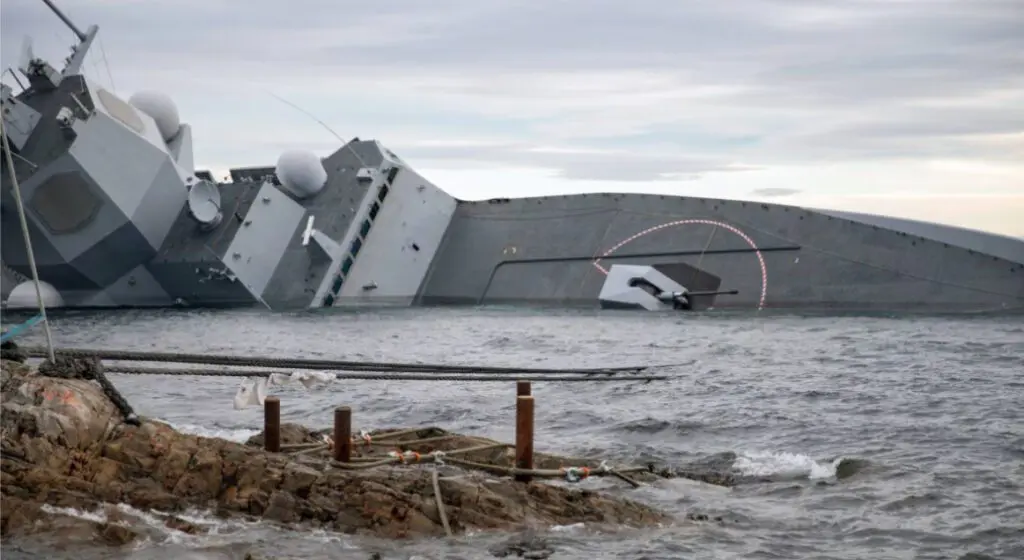The Weekly Reflektion 05/2024
Reflekt has been and still is very critical to the decision to both the prosecution for negligence and the guilty verdict of the Officer of the Watch on Helge Ingstad for the collision with Sola TS in 2018. In investigations we have carried out our main concern has been to extract learnings from the incident to prevent a recurrence. Learning and experience transfer from incidents, accidents and of course Major Accidents needs to be our main primary focus in all investigations.

The frigate KNM Helge Ingstad capsized in Hjeltefjord
What does the Helge Ingstad prosecution mean for future learning from experience in Norway?
The Officer of the Watch (OOW) on KNM Helge Ingstad will not appeal the verdict to the Norwegian Supreme Court. Thisputs an end to the criminal case, but not the consequences of it. The Helge Ingstad incident and its aftermath are almost exclusively negative for future safety work in Norway, including in the oil and gas industry.
The original decision of the courts, and the result of the appeal indicate that the desire for punishment is the main driving factor in the legal system. The law seems to favourpunishment of the people involved in the incident rather than the people responsible for the systems and processes in use. Finding fault with the systems and processes seems to be regarded as a pulverisation of responsibility, and immaterial to the question of guilt of people lower in the system. Blaming the system of course begs the question of who is then at fault and who can be prosecuted. Much simpler to find fault with the participants and prosecute thereafter. Prosecution in this case has no preventative effect but succeeds only in satisfyingsome primitive, or even biblical, sense of vengeance, perhaps making everyone else feel slightly better by putting all the blame on one person rather than the system where many may feel guilty.
When Reflekt performs investigations, the goal is to try to understand why people did what they did, and why they thought what they were doing was reasonable and logical at the time and attempt to take measures to learn from this perspective. The Helge Ingstad prosecution was about what those involved should have done, and not about why they did what they did. This way of thinking is on the way out in the world of investigation, but not seemingly in the world of law and justice.
In the oil and gas industry in Norway, we have nurtured the culture of being open when mistakes are made, of being honest when an incident occurs, so that we can really understand the context surrounding the incident and extract the maximum learning. The immediate side effect of the Helge Ingstad prosecution will be to cause people to be more reticent when communicating their version of the truth, choosing carefully what is said and not said, to be sure a minimum ofblame is attached to the people involved. This will make the job of the investigation team a lot more difficult and hinder effective learning from incidents. The Norwegian Petroleum Safety Authority (now the Norwegian Ocean Industry Authority) and their ‘Never again another Major Accident’ will be more difficult to achieve.
The way Norwegian Law is written and practised is outdated from a learning viewpoint. The Norwegian legal system should be above the primitive need to punish people when they are honestly trying to do their best. It is time for the politicians to act.
